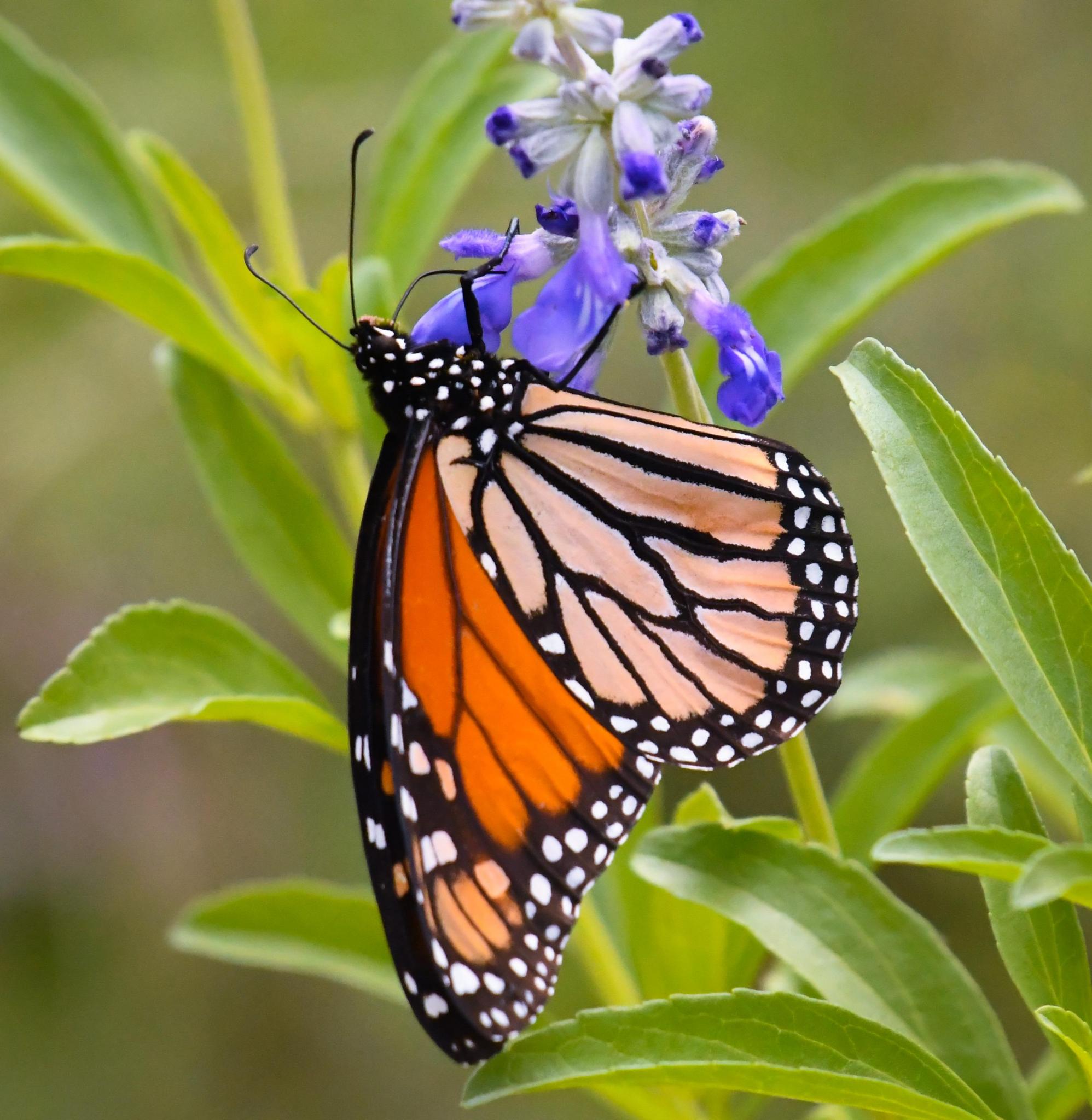
A monarch butterfly on a native salvia flower. Daily Record photo by Lance Winter
Spring Lake Garden Club meets, discusses best practices for sharing Wildflower seeds
Spring Lake Garden Club members at the October monthly meeting learned about professional collecting and sharing seeds of wildflowers and grasses. The presenter was Minnette Marr from the Lady Bird Johnson Wildflower Center.
Marr scouts the natural areas of San Marcos for new plants especially ones endangered because of changing climate conditions and urban development. Marr’s expertise is identifying species of wildflowers and grasses and seed gathering based on research to achieve successful reproduction of the plants.
The first step of plant identification is important. For example, there are over 30 types of milkweed, a plant most people would only think is one type. For identification, photos can be submitted along with pertinent information as to location and growing habits. Experts suggested for identification of plants and seeds are university professors, extension agents, and the research center at the Lady Bird Wildflower Center. Specialists at the research center usually give fairly quick response in 18 days or less.
When seeds are determined to be in need of collection and reproduction, specialists like Marr first secure permission from the landowner. To ensure a diversity across the population, seeds are collected from 25 seed parents of the plants.
Collection of seeds is carefully controlled. To be kept alive, seeds must be kept cool and dry. Seeds are collected in paper bags instead of plastic bags which retain too much moisture.
Seeds are distributed to plant nurseries, schools, parks and the general public for reproduction to increase the populations. Rare seeds are stored in seed banks for research and preservation.
A project Marr is currently involved in is increasing plants for the feeding of the monarch butterflies. Their migratory path in Texas comes right through the Central Texas area which has seen a decline in the plants the monarchs depend on.
Marr praised the estate of H. J. Hewitt for providing funds to support the southbound migratory path of the monarch butterflies.
At the end of the presentation, Marr distributed packets of seeds for members to plant to support the monarchs. Some of the packets were for Green Milkweed, Texas Gumweed, Spanish Gold, Frostweed, and Turkey Tangle Fogfruit. All are plants favored by the monarchs.











